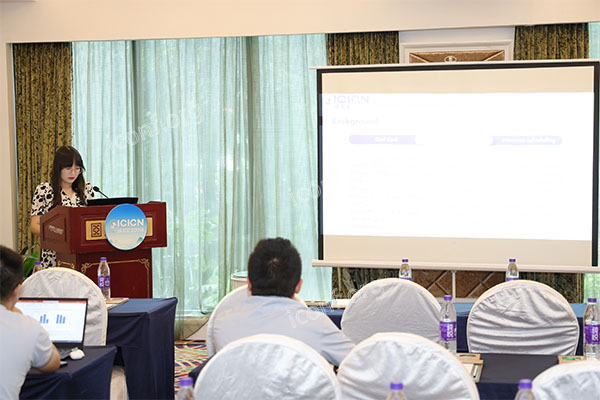

303 views||Release time: Dec 19, 2024
Asking thoughtful and relevant questions at academic conferences is a powerful way to engage with experts, showcase your understanding of the topic, and contribute to the academic discourse. Whether you're attending in person or virtually, asking questions can open doors to new insights, discussions, and networking opportunities. In this article, we’ll provide you with tips and strategies for asking impactful questions that will leave a lasting impression at academic conferences.

Asking questions at academic conferences offers several key benefits:
Preparation is key to asking insightful and relevant questions. Here’s how to get ready:
Take detailed notes during the presentation, focusing on key points, interesting findings, or areas that may require further explanation. This will give you material to work with when crafting your question.
Think critically about the content being presented. Did the speaker mention any aspects of the research that were unclear? Are there any gaps in the data or assumptions that you would like to challenge or explore further?
Instead of asking broad or general questions, aim to ask specific, targeted questions that demonstrate your understanding of the material. Here are some examples:
By being specific, you make it easier for the speaker to provide a focused and meaningful answer.
How you ask your question is just as important as what you ask. Here’s how to structure your questions clearly:
Keep your question short and to the point. Avoid long introductions or tangents that might confuse the speaker or take up too much time. Focus on the core issue you want to address.
Most Q&A sessions have limited time, so make sure your question is concise and meaningful. Avoid asking multiple questions at once, and focus on one clear issue.
Open-ended questions encourage a deeper conversation and allow the speaker to explain their findings in more detail. Instead of asking yes/no questions, aim to engage the speaker with queries that invite elaboration.
Depending on the focus of the presentation, there are different types of questions you can ask:
If you don’t fully understand a part of the presentation, asking for clarification can help. Be specific about what needs further explanation.
If you’re particularly interested in the research design or methodology, you can ask questions that focus on how the research was conducted.
These questions critically engage with the research findings and ask the presenter to explain or justify their conclusions.
If you’re interested in the larger context or implications of the research, these questions help the presenter link their findings to broader topics or real-world applications.
As many conferences are now held virtually, asking questions in a virtual setting requires a different approach. Here’s how to engage effectively in virtual Q&A sessions:
Before the conference starts, familiarize yourself with the virtual platform. Many online conferences use tools like Zoom, Microsoft Teams, or custom platforms with specific Q&A features. Know how to submit questions and whether there’s a chat option for asking them.
In virtual conferences, questions may be submitted through a chat or Q&A box. Make sure to type your question clearly and submit it in a timely manner. Avoid posting questions that are too general or irrelevant to the session.
After the Q&A, many virtual conferences offer the chance to meet in breakout rooms or engage in informal discussions. Take advantage of these opportunities to connect with speakers and attendees, ask additional questions, and learn more.
No matter the setting—whether in-person or virtual—maintaining professionalism during the Q&A is critical. Here are some best practices:
Don’t monopolize the Q&A session with long or multiple questions. If your question requires a detailed response, consider reaching out to the speaker after the session or connecting via email or LinkedIn.
Let the speaker finish their point before asking your question. Interrupting may disrupt the flow of the session and prevent other attendees from having the chance to ask questions.
Academic conferences are forums for exchange, so even if you disagree with a speaker, approach the situation with an open mind. Frame your questions constructively to stimulate a productive conversation.
Asking insightful and well-structured questions at academic conferences is an important skill that helps you engage with the material, contribute to discussions, and build professional relationships. By preparing in advance, crafting clear questions, and maintaining professionalism, you can make the most of every opportunity to learn, network, and grow in your academic journey.
For more resources and upcoming conferences, visit academic.net and stay informed about the latest events and opportunities to engage with the global academic community.
Start preparing for your next academic conference at iconf.com